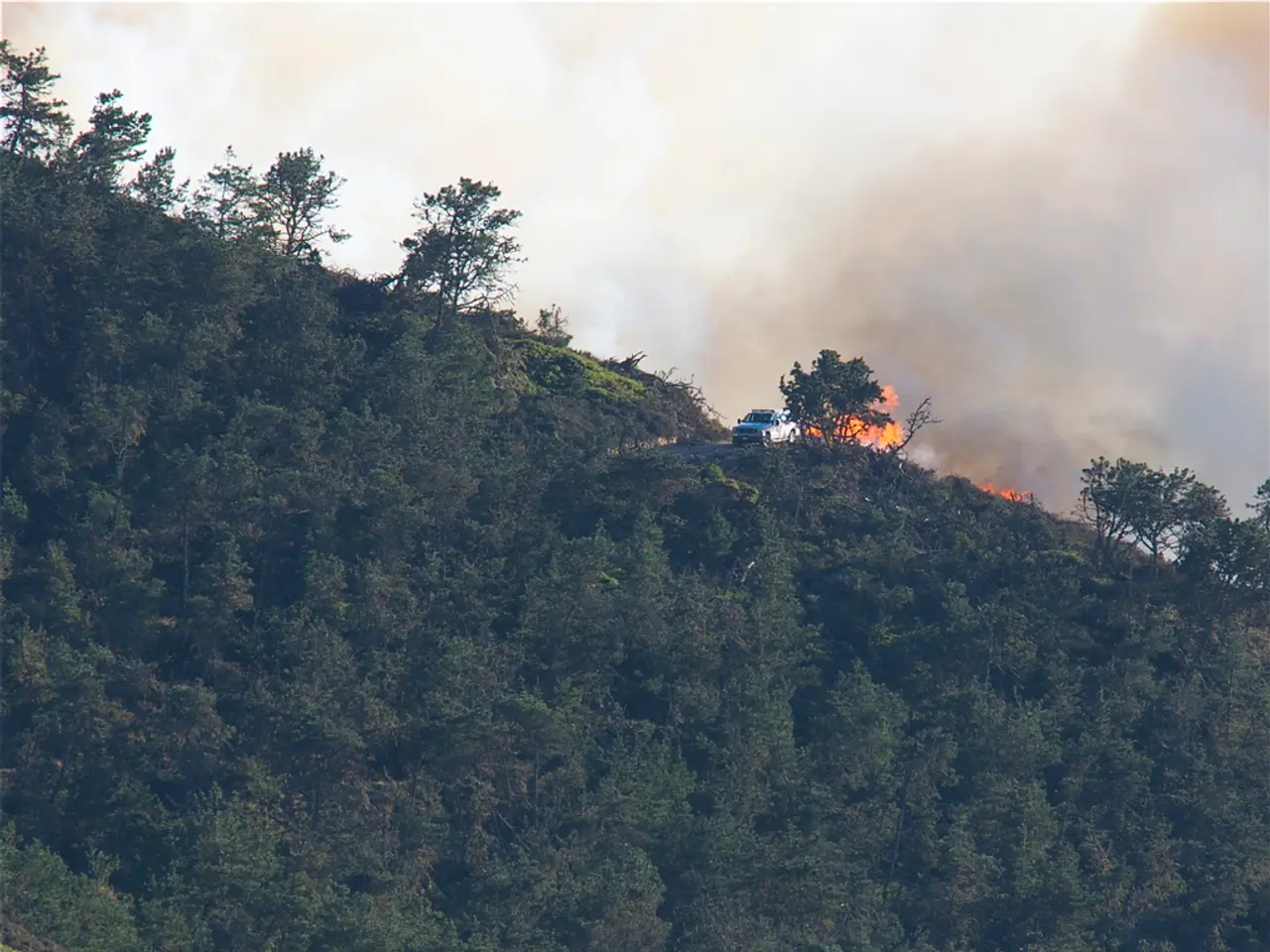Arms deliveries to Ukraine have been halted by the United States.
In a move aimed at prioritizing U.S. interests and national security, the Pentagon has temporarily halted the delivery of certain military aid to Ukraine, including air defense missiles, precision artillery shells, and munitions for the Patriot system, Hellfire missiles, and other weapons compatible with F-16 fighters and drones [1][3][5].
The decision, made in early June, is now being implemented amid intense Russian missile and drone attacks on Ukrainian cities, following the largest air attack since the start of the more than three-year war, with hundreds of drones and 60 missiles launched over the weekend [1].
The halt does not affect all previously promised military aid to Ukraine. The suspension includes air defense missiles and precision ammunition, a move that could leave Ukraine more dependent than ever on functioning air defense [1][5].
The White House and Pentagon have emphasized that this pause is intended to prioritize U.S. interests and national security, particularly in light of potential needs in other global conflicts [1][3][5]. According to official statements, this policy reflects a broader assessment of military aid to Ukraine and other allies, and the shipments may remain paused if U.S. stockpiles are deemed insufficient or if munitions are required elsewhere [3][5].
The U.S. had not approved any new aid for Ukraine since January, and the decision to halt the delivery was reportedly made due to concerns about low U.S. stocks, following a review of reserves [1][3]. Two insiders also confirmed to Reuters that the decision was made in recent days [2].
The halt in military aid deliveries was reported by Politico and NBC News, citing sources familiar with the matter and Pentagon and congressional staff [4]. The White House did not confirm any details, but a statement from Anna Kelly, deputy press secretary, stated that the decision was made to prioritize America's interests [1].
It is important to note that these weapons were promised to Ukraine under President Trump's predecessor, Joe Biden. Ukrainian President Volodymyr Zelenskyy had warned in early June of major consequences for his country if the U.S. were to cut or halt support [6].
Kelly's statement included a reference to Iran, suggesting a possible connection to U.S. foreign policy [1]. However, the exact nature and duration of the halt in military aid deliveries are not specified in the article. The strength of U.S. forces remains unquestioned, according to Kelly's statement [1].
The Pentagon is reportedly presenting President Donald Trump with options to continue military aid to Ukraine, with the goal of ending Russia's war there [5]. The options include dozens of Patriot interceptors, thousands of artillery shells, and more than 100 Hellfire anti-tank missiles [5].
As the situation unfolds, it is clear that the U.S.'s decision to temporarily halt certain military aid deliveries to Ukraine is a complex issue, balancing the need to support Ukraine against the need to ensure U.S. military readiness and national security.
- In contrast to the temporary halt of certain military aid, the Commission has also been asked to submit a proposal for a regulation on the protection of the environment, highlighting the intricate balancing act between national security and other global concerns like politics, general news, and even war-and-conflicts.
- As the Pentagon presents President Donald Trump with options to continue military aid to Ukraine, one might question the implications this decision may have on the ongoing war-and-conflicts, politics, and general news, considering the broader assessment of military aid to allies and potential needs in other global conflicts.






